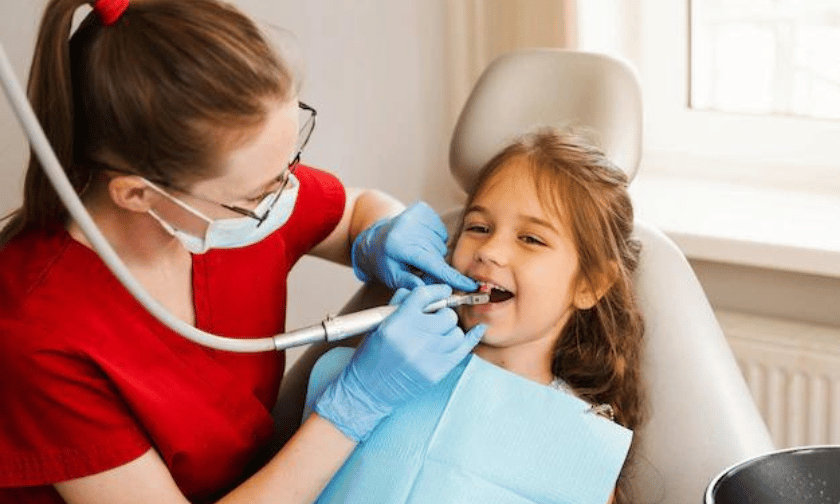As a parent, you always want to do everything you can to keep your child healthy and safe. When it comes to their teeth, you may not always know the best course of action. However, by following these ten tips, you can help avoid those dreaded dental emergencies with your kids.
- Schedule regular dentist appointments for them starting at a young age
- Teach them how to brush and floss properly
- Put together a dental emergency kit
- Avoid putting sugary drinks in their sippy cups or bottles
- Don’t share utensils or cups with them when you are sick
- Wipe their gums after they eat
- Get sealants applied to their teeth if necessary
- Monitor their oral hygiene habits
- Encourage them to eat crunchy fruits and vegetables
- Explain the importance of taking care of their teeth from an early age
Schedule regular dental checkups for your child and take them to the dentist at least once a year
It is essential to schedule regular dental checkups for your child and take them to the dentist at least once a year. Regular visits help to ensure that any developing issues can be identified, diagnosed, and treated as soon as possible. It also helps create good oral habits and allows your dentist to track changes over time to promote good oral health. Taking your child to the dentist can prevent cavities, gum disease, and other potentially severe problems. By ensuring they have proper care and regular checkups, you can help protect their smile for years to come!
Teach your child how to properly brush their teeth, using fluoride toothpaste, and floss daily
Teaching children the importance of dental hygiene is mighty important, as it can help them develop healthy habits. Being consistent with brushing and flossing their teeth each day is integral, and by supporting them in doing so from an early age, you’ll be giving your child a fantastic head start. Make sure you are using toothpaste that contains fluoride, as this has been shown to reduce cavities – apply a pea-sized amount of paste onto their toothbrush (and don’t forget to replace it every 3-4 months!). Then encourage them to brush twice daily (in the morning and at night), using gentle motions around their mouth, including on the inner and outer surfaces of all their teeth. Once they get good at this, they should also spend two minutes brushing each time. Lastly, teach your child how to floss daily; do this with them and reinforce how important it is to keep up with these hygienic practices!
Avoid sugary drinks and snacks that can contribute to cavities.
Sugary snacks and drinks are simple pleasures in life that can quickly lead to dental issues. Too much sugar on teeth can start a bacterial process leading to cavities. This is why it’s essential to avoid eating sugary snacks and drinking sugary beverages frequently and limit them as much as possible. Sugary drinks, especially soda, contain phosphoric acid that erodes the enamel on our teeth and since our tooth enamel doesn’t regenerate, replacing it involves lots of time, effort, and money. When craving something sweet, choose a piece of fruit or a healthier alternative with fewer processed sugars, like dried fruits or ice cream substitutes, rather than sugar-filled drinks and snacks. Taking steps to protect your smile now will help you avoid costly procedures later!
If your child plays sports, wear a mouthguard to protect their teeth.
Playing sports can be an excellent way for children to stay active and healthy, but it can also put them at risk for injuries. Parents should invest in a personalized mouthguard for their children to wear to ensure their teeth remain safe during sports activities. Doing so will help provide an extra layer of protection from potential impacts and contact that could chip, crack, or dislodge teeth. It’s a simple way to ensure your child’s dental health is well taken care of when participating in high-intensity physical activity. In addition to this preventative measure, parents should take other steps, such as scheduling regular checkups with the dentist and teaching their children the importance of proper nutrition and oral hygiene routines.
Inspect your child’s teeth regularly at home, looking for any signs of decay or damage
Taking a few moments every week to inspect your child’s teeth for any signs of decay or damage can be crucial to maintaining your child’s dental health. Initial symptoms of possible issues can range from discoloration to chips in their enamel or even lumps and bumps on the surface, all of which can be identified by a quick observation at home. Regular inspections are crucial when identifying cavities, as those in their early stages may not be detected at routine dental visits. When overlooking possible problems with your child’s teeth, it is best to err on the side of caution—if anything appears out of the ordinary, contact your dentist immediately.
If you notice anything unusual, schedule an appointment with the dentist immediately.
Taking care of your oral health is incredibly important. If you notice anything unusual in your mouth, like redness, sensitivity, or bleeding gums, it’s best to schedule an appointment with the dentist as soon as possible. Catching any issue early can lead to timely treatments and prevent more severe problems. A dental checkup can also help ensure your smile remains healthy for years. Don’t wait until it’s too late – be proactive about taking care of your teeth by scheduling regular appointments with the dentist.
To ensure your child has healthy teeth and gums, it’s important to schedule regular cleanings with the dentist and teach them how to take care of their teeth at home properly. You can avoid cavities by monitoring your sugar intake and brushing your teeth twice daily with fluoride toothpaste. Additionally, if your child plays sports, wear a mouthguard to protect their teeth from damage. These simple tips can help your child maintain healthy oral hygiene habits that will last a lifetime!


